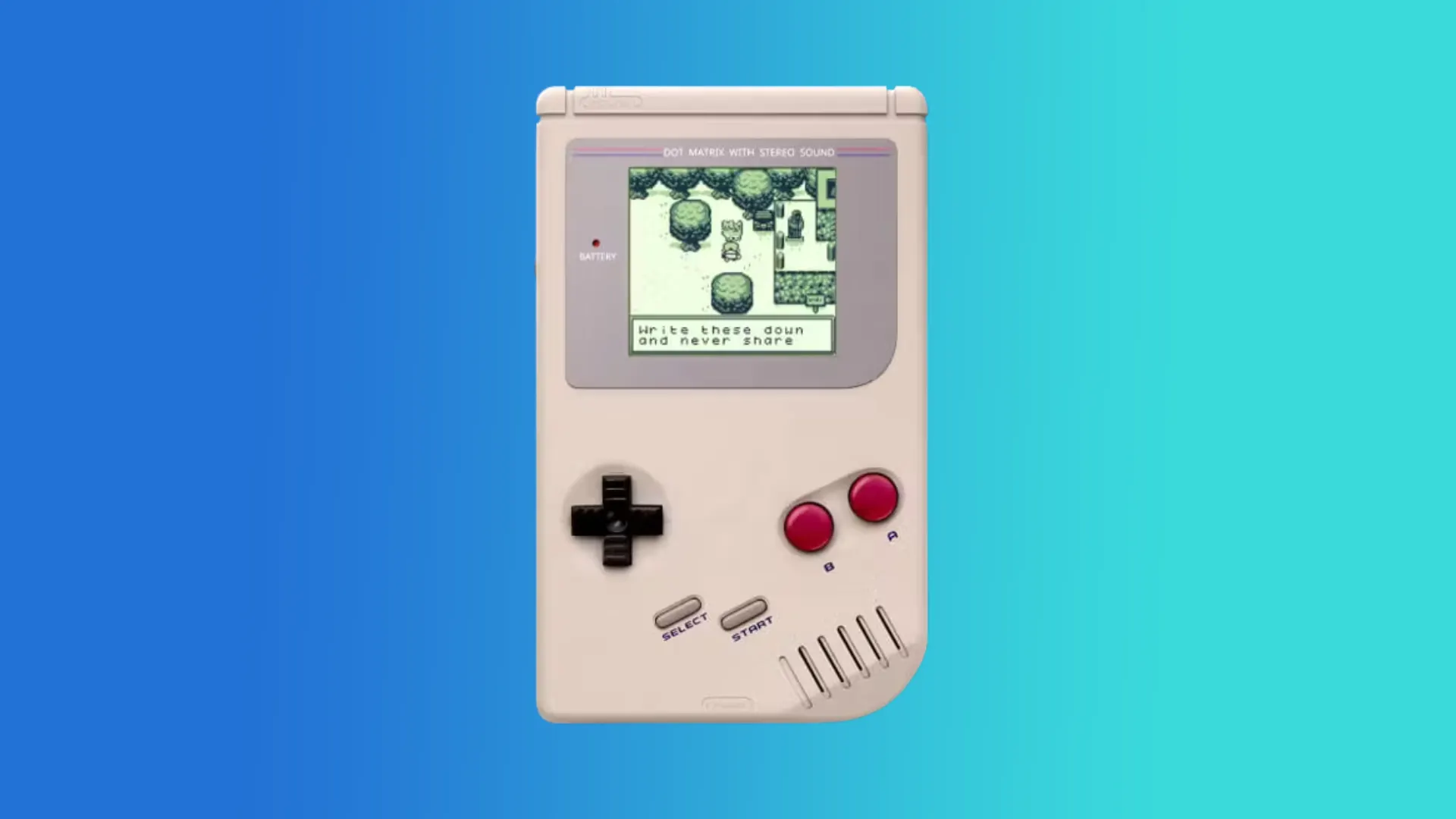Craving both '90s nostalgia and ice-cold crypto storage? A small team of developers at crypto startup Keyp is revamping original Nintendo Game Boy handheld consoles and optimizing them to store cryptocurrency offline, transforming the popular handheld of yore into a crypto hardware wallet called the Game Wallet.
But the Game Wallet isn’t just a newfangled hardware wallet with a Game Boy console cover. In fact, the Game Wallet is far from a gimmick—it’s a brand new Game Boy game cartridge that actually uses gamification to generate users’ seed phrases through random quests and interactions with non-playable characters (NPCs).
Once set up, the Game Wallet will be able to store any cryptocurrency that uses BIP-32 seed phrases, which means it can store coins like Bitcoin and Ethereum at launch. Its software will also be open source and available for anyone to create their own implementation, if desired.
Keyp founder Joseph Schiarizzi told Decrypt that the wallet’s game experience will be “Pokémon-like.”
“Our primary focus at Keyp is making Web3 accessible and safe for everyone with tools like social logins and extra security layers for wallets," Schiarizzi said. "Game Wallet is a fun project [and] extension of that."
While the Game Wallet has been in development since January, Keyp's nine-person team believes the recent controversy surrounding Ledger’s new “recovery” service means a truly offline storage solution is needed. Game Wallet is marketing itself as an offline storage option that promises no firmware updates—ever.
“With all the drama around the recent Ledger hardware wallet update, we realized the need for truly offline cold storage that minimizes trust,” Keyp co-founder Sascha Mombartz wrote on a Game Wallet product page.
“What started as a fun idea now seems to be a really important product," Mombartz added. "Trusting the supply chain for new security devices can be scary because we don’t know who has messed with a device, but I know exactly where the Game Boy on my shelf has been for the last 20 years."
The Game Wallet doesn’t yet have an official release date, but Schiarizzi told Decrypt that the company plans to open pre-orders soon and is targeting a summer rollout, barring supply chain and/or technical hurdles.
This isn’t the first time crypto enthusiasts have “cryptified” the Game Boy, however. Two years ago, a pseudonymous IT security researcher turned the handheld into a Bitcoin mining device—albeit a very slow one.
Daily Debrief Newsletter
Start every day with the top news stories right now, plus original features, a podcast, videos and more.

